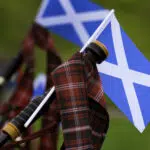Day of Remembrance for all Victims of Chemical Warfare is observed on November 30 internationally. This holiday was created by the United Nations and is held to remember the victims of chemical warfare and to affirm the Organization of the Prohibition of Chemical Weapons’ commitment to the cause. This holiday aims to encourage efforts for eliminating the use of chemical weapons.
History of Day of Remembrance for all Victims of Chemical Warfare
The Day of Remembrance for All Victims of Chemical Warfare was organized by the United Nations as a way of honoring all the lives lost as a result of chemical weapons. Chemical weapons were first invented in 1918 by a German chemist named Fritz Haber. He is best known for inventing the Haber-Bosch process that synthesizes ammonia from nitrogen gas and hydrogen gas, which aids in synthesizing fertilizers. This invention is used in global food production and supports nearly half of the world’s population. However, this isn’t Haber’s only life-changing invention.
During World War I, Haber signed the Manifesto of the Ninety-Three, in which he and other German scientists and scholars declared their support of the German military. Haber developed and weaponized poisonous gasses to be used in trench warfare, as well as gas masks and filters to protect against them. The Germans first used their chemical weapons in Belgium in 1915 at the Second Battle of Ypres, releasing 168 tons of chlorine gas. From then on, Haber and his team continued to experiment and further developed their chemicals to make them more effective. These efforts were later continued in America where they developed a gas that released irritants, making soldiers take off their masks and be exposed to the gas.
There is no doubt that these chemical weapons would be much stronger and more fatal had they continued being developed. In 1992, a treaty was drafted named the Chemical Weapons Convention and was enacted in 1997. Thankfully, most countries have agreed to destroy their chemical weapons.
Day of Remembrance for all Victims of Chemical Warfare timeline
Chemical weapons are first invented for use in World War I.
The treaty to destroy and prohibit chemical weapons is drafted.
The treaty to destroy and prohibit chemical weapons is enacted.
The U.N. proclaims the Day of Remembrance for all Victims of Chemical Warfare.
Most of the world destroys its chemical weapons.
Day of Remembrance for all Victims of Chemical Warfare FAQs
What is an example of chemical warfare?
The most commonly used chemical weapons are chlorine gas, nerve agents, ricin, lewisite, and mustard gas.
What does chemical warfare do to the body?
They paralyze the respiratory muscles and inhibit the respiratory system, often killing the victim. Some may cause an increased risk of developing cancer.
How can you protect yourself against chemical weapons
By wearing a gas mask and protective clothing, closing doors and windows, and turning off ventilation, furnaces, and air conditioners.
How to Observe Day of Remembrance for all Victims of Chemical Warfare
Pay tribute
Take the day to grieve and pay tribute to victims of chemical warfare. Keep their memory alive by continuing to talk about them and share their stories.
Spread awareness
Talk to those around you about the effects of chemical warfare and share posts on social media to keep everyone informed. Remind them of what work is to be done.
Donate
Donate to savethechildren.org to help victims in Syria against chemical attacks. You can also donate to icanw.org/donate to aid in passing a treaty to stop nuclear weapons.
5 Facts You Should Know About Chemical Weapons
They killed many people
Nearly 100,000 people died from chemical weapons in World War I — since then, there have been nearly one million deaths.
Some countries still have chemical weapons
Egypt, Israel, North Korea, and South Sudan did not sign the treaty and may possess chemical weapons — the U.N. aims to encourage these countries to follow suit.
They are still being used
Despite having destroyed their chemical weapons, some countries are illegally using chemical warfare and there is still much work to be done to ensure this doesn’t continue happening.
It’s damaging to the environment
Chemical warfare is extremely damaging to all organic life — it can contaminate the soil and remain toxic for years.
They aid in nothing but destruction
Despite Germany having developed many types of chemical weapons, Hitler refused to use them knowing the enemy would respond by using them as well.
Why Day of Remembrance for all Victims of Chemical Warfare is Important
It honors the lives lost
This day allows those who have lost people to chemical warfare to mourn and honor their lives, whether soldiers or citizens. It serves as a reminder of how cruel war can be.
It shows progress
This day reminds us of how much progress was made in saving the lives of future generations. It also reminds us how much work there is left to do.
It protects people
It’s important to remember that chemical weapons are against international law and are inhumane. This is one step taken to establish peace, and the U.N. is continuing to make similar efforts to protect people.
Day of Remembrance for all Victims of Chemical Warfare dates
| Year | Date | Day |
|---|---|---|
| 2024 | November 30 | Saturday |
| 2025 | November 30 | Sunday |
| 2026 | November 30 | Monday |
| 2027 | November 30 | Tuesday |
| 2028 | November 30 | Thursday |

















